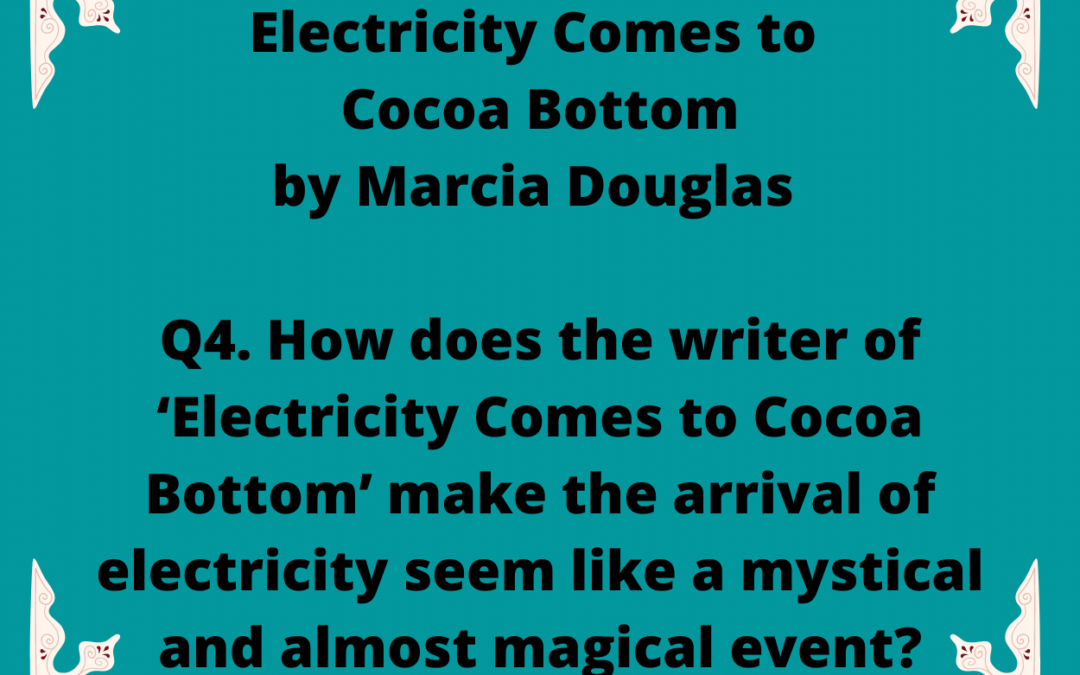Edexcel English IGCSE: Electricity Comes to Cocoa Bottom by Marcia Douglas
Q4. How does the writer of ‘Electricity Comes to Cocoa Bottom’ make the arrival of electricity seem like a mystical and almost magical event?
In your answer, you could write about:
- the portrayal of nature;
- the build-up of suspense and tension;
- the description of the event itself;
- the writer’s use of language.
You should refer closely to the poem to support your answer. You may use brief quotations.
Edexcel English IGCSE Model Essay by an Expert
‘Electricity Comes to Cocoa Bottom’ is a poem describing the arrival of electricity to a small village. Reflecting the importance and significance of this event, the writer portrays it as magical and even religious. She does this by relating the event to a fairy-tale or a performance, and by using religious references in the description of the event itself.
In the first stanza, the writer builds up suspense and tension, which contributes to the idea that the event is going to be amazing. One way that the writer builds suspense is by creating a story-like tone. By starting with the word “Then”, the poem starts as if it is part-way through a story. The names in the poem are also reminiscent of a fairy-tale: “Cocoa Bottom” sounds a bit silly, and fairy-tales often have a “Grannie” in them. By making the event seem like a fairy-tale, the writer builds tension by suggesting that something magical could happen. The language used by the writer is also suggestive of a performance – perhaps a magical performance – such as the birds “congregating” like an audience and the evening coming in like a “curtain”.
The writer’s portrayal of nature also contributes to the idea that the event is magical and mysterious. Nature is strongly personified, to the extent that it seems even more excited and shocked about the arrival of electricity than the humans. For example, even the breeze is personified as having “held its breath” before the event. Similarly, the birds react strongly to the lights coming on, suggesting that they are shocked and excited. By suggesting that nature is ‘conscious’ and reacting to the electricity, the writer creates an almost magical world, in which nature can have opinions and act according to events going on in the human world.
The description of the event itself creates a strong sense that the arrival of electricity is almost akin to a religious occasion. Mr Samuel is portrayed as almost god-like: he is “smiling” like a benevolent and omniscient figure, and has a “yellow shimmer behind him”, like a halo. Furthermore, there are subtle Biblical references throughout the second stanza. The exclamation “Light!” is reminiscent of the story of the creation in Genesis, and the “swelling and swelling” wind is a reference to the story of the Pentecost. The personified image of the grasses with their “bowed heads” is also suggestive of a congregation in church.
By implying that the arrival of electricity is a magical or religious event, the writer emphasises the significance of the technological advancements on the island. It is perhaps also a subtle hint that humans, with their abilities to imitate nature in unnatural ways, are ‘playing God’, hence the shocked reaction of the natural world.



